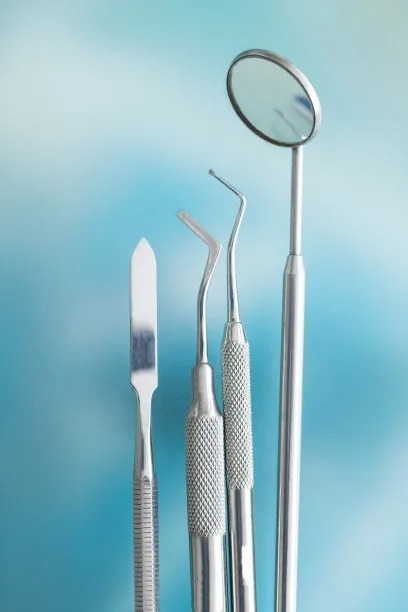Summary: After dental fillings, following essential guidelines is crucial for maintaining optimal oral health and ensuring the longevity of the dental treatment. This article discusses four critical aspects: proper oral hygiene practices, dietary considerations, managing sensitivity and discomfort, and the importance of regular dental check-ups. Each section provides detailed insights and practical tips to help individuals care for their fillings, prevent complications, and enhance overall dental well-being. By adhering to these guidelines, you can significantly reduce the risk of further dental issues and enjoy a healthier, brighter smile for years to come.
1. Importance of Proper Oral Hygiene Practices

Maintaining impeccable oral hygiene is paramount after receiving a dental filling. Begin with gentle brushing of the teeth, especially around the filling site. Use a soft-bristled toothbrush and fluoride toothpaste to ensure effective cleaning without causing any damage. It is advisable to wait at least 24 hours before brushing the filled area vigorously to let the filling settle properly.
Flossing also plays a crucial role in oral care. Carefully maneuver the floss between your teeth to eliminate food particles and plaque that can accumulate around the filling. Be cautious not to snap the floss against the filling, as this could potentially dislodge it or cause discomfort.
In addition to brushing and flossing, consider using an antibacterial mouthwash. This can help reduce the bacterial count in the mouth, promoting better overall oral health. Regular rinsing can keep the area around the filling clean and free from any infection.
2. Dietary Considerations Post-Filling
Your diet after a dental filling is another critical factor in prolonging its lifespan. It is advisable to avoid hard or sticky foods for at least 24 hours post-treatment, as these can dislodge the filling or cause discomfort. Instead, opt for softer foods that are easier to chew.
Stay clear of hot or cold beverages during the first few days, as they may trigger sensitivity reactions in the filled tooth. Instead, consume lukewarm liquids that will not exacerbate any discomfort. Once you have confirmed that the filling has settled well and there is no sensitivity, you can gradually reintroduce your regular diet.
Hydration is equally important. Drinking water frequently helps wash away food particles and bacteria, which can lead to decay around the filling. Aim for at least eight glasses of water daily to support optimal oral health.
3. Managing Sensitivity and Discomfort
Post-treatment sensitivity is a common experience for many individuals after receiving a dental filling. It may cause temporary discomfort to hot and cold stimuli. To manage this sensitivity, consider using a toothpaste designed for sensitive teeth, allowing for a more relaxed experience while brushing.
If the discomfort persists, over-the-counter pain relievers such as ibuprofen or acetaminophen may be helpful. However, consult with your dentist before taking any medication, especially if you have underlying health concerns.
Communication with your dentist is key. If the sensitivity or pain continues beyond a few days, it’s important to schedule a follow-up appointment for further evaluation. Your dentist can determine if adjustments are needed for the filling or if additional treatment is required.
4. Importance of Regular Dental Check-Ups
Regular dental check-ups are indispensable, especially after undergoing treatments like dental fillings. It is generally recommended to visit your dentist every six months for professional cleanings and examinations. This enhances the ability to monitor the condition of your fillings and catch potential problems early.
During these visits, your dentist can provide personalized advice on maintaining your oral health, as well as assess whether your fillings require any repairs. They can also offer insights on any other dental issues that may arise and how to manage them effectively.
Furthermore, maintaining open communication with your dentist about any changes in your oral health can greatly assist in promoting longevity for your fillings and overall dental treatment. Don’t hesitate to discuss any concerns or questions you may have during your appointments.
Summary:
Following these essential guidelines after dental fillings can significantly enhance oral health and prolong the life of the treatment. Practicing proper oral hygiene, making informed dietary choices, managing sensitivity, and committing to regular dental check-ups are all pivotal steps in maintaining your smiles integrity.
This article is compiled by Vickong Dental and the content is for reference only.
Vickong Dental
Vickong Dental is a large medical group established in Hong Kong in 2008 by professors from well-known medical universities in Guangdong and Hong Kong, as well as medical doctors from key national '985' universities (including Master's supervisors and senior professors). The chain of branches brings together expert dentists with PhDs and Master's degrees from Hong Kong and Mainland China, committed to providing high-quality dental treatment.
"Vickong Dental Practices the University Motto of 'Healing and Serving Society,' with a Stable Operation for Sixteen Years. It Has Been honored with Hong Kong Enterprise Leaders's Choice,' and is a Global Trusted Implant Center for the Nobel Implant System. Recommended by Hong Kong Metro Broadcast and Guangdong Television, it Serves Customers from Over Thirty Countries and Regions, Gaining the Trust and Favor of Citizens from the Guangdong-Hong Kong-Macau Greater Bay Area and Surrounding Cities.

Thousands of customers' unanimous praise
The most recognized and highly recommended dental service by customers in the Guangdong-Hong Kong-Macau Greater Bay Area
We Ensure You Receive Detailed Care and Attention Here
Hong Kong standards, Shenzhen prices, Your Trusted English-speaking dentists

Vickong Dental Medical-Grade Instrument Disinfection Process
Vickong Dental Medical-Grade Instrument Disinfection Process

Vickong Dental Chain: A Warm and Comfortable Environment for Treatment






Appointment Hours

Q&A
Why choose Vickong Dental?
Vickong Dental practices the university motto 「Medicine to Benefit Society」, with each branch bringing together highly qualified dentists with doctoral and master’s degrees from Hong Kong and the Mainland, and has maintained seventeen years of steady operation。Recipient of 「2024 Hong Kong Enterprise Leaders Brand」, 「2025 Hong Kong Enterprise Leaders Brand」, a Nobel Biocare Global Trusted Implant Center, and a brand recommended by Metro Radio Hong Kong and Guangdong TV。
To date, we have served customers from more than thirty countries and regions,earning exceptionally high word-of-mouth recognition and trusted recommendations from residents across the Guangdong-Hong Kong-Macao Greater Bay Area and surrounding cities
We have eight major branches in Zhuhai、Shenzhen,and a consultation and service assurance center in Hong Kong,so you can book a free consultation at any time for any questions,which is very reassuring.
If I do not accept the quotation after the CT scan, will I be charged??
No! As long as the actual treatment has not started, you will not be charged any fees.
Will there be any additional charges during the treatment process?
No, there won’t be any additional charges. Before treatment begins, we will clearly explain the treatment plan and its corresponding fees. Only after the patient agrees and signs the consent form will we proceed with the dental service.
Can I pay in Hong Kong dollars?
Yes. Vickong Dental accepts payment in Hong Kong dollars. The amount will be converted based on the exchange rate of the day, and the applicable rate will be clearly communicated to you in advance.
Can I reschedule my appointment at any time?
Yes. Please contact us via **WeChat** or **WhatsApp** as early as possible, providing your original appointment time and details, along with your preferred new date and time slot for rescheduling.













